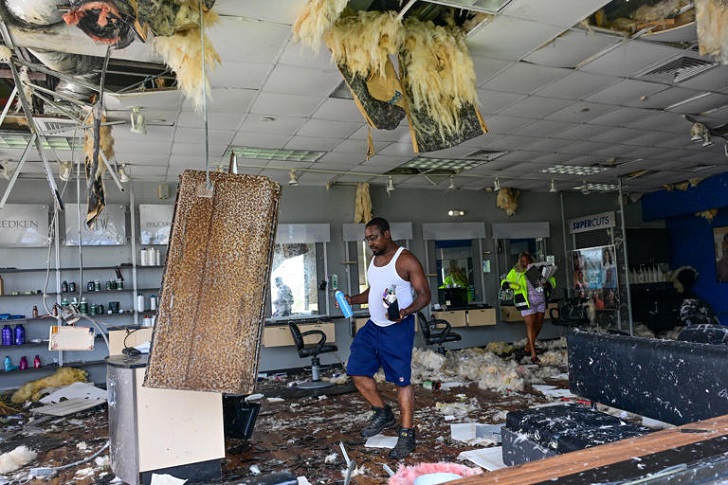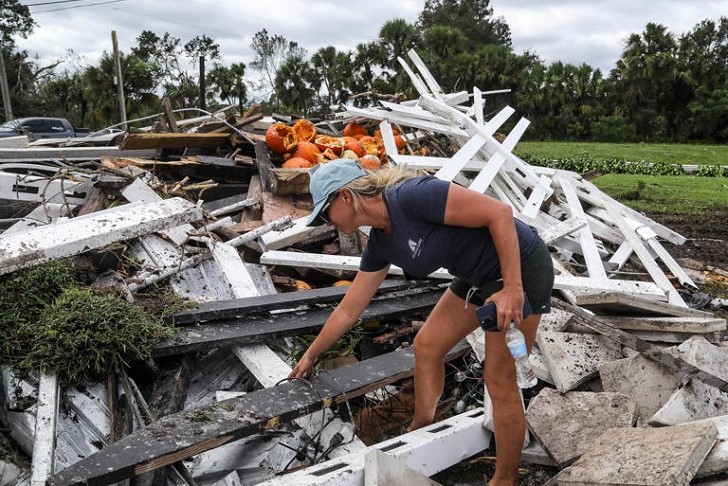When a hurricane hits, the resulting damage can be overwhelming and costly. It’s essential to approach the recovery process strategically to ease the financial strain. Following a few smart steps can help reduce hurricane damage expenses while ensuring that necessary repairs are managed efficiently. Here’s what to keep in mind as you assess and restore your property.
8 Steps to Take to Manage Hurricane Damage Expenses
1. Follow Safety Protocols Before Entering Your Home
Safety should always come first after a hurricane. Reentry orders from local authorities signal when it’s safe to return, ensuring roads are clear and power lines are secured. Don’t attempt entry until officials confirm it's safe. When you return, proceed with caution: avoid floodwaters, check for gas leaks, and refrain from using light switches. These steps can prevent injuries and secondary damage, which can add to your expenses.
2. Document Damage Thoroughly for Insurance Claims
Your home insurance claim process begins with documenting the storm’s impact. Before any cleanup, take photos and videos of all damages, as clear visual records will support your claim. To streamline this step, keep an inventory of your home’s valuables, which can help assess the extent of losses. Detailed documentation reduces the likelihood of insurance disputes, helping you receive the compensation you need for repairs.
3. Apply for FEMA Assistance to Cover Essential Needs
In areas declared as disaster zones, the Federal Emergency Management Agency (FEMA) offers immediate assistance for urgent needs. The $750 Serious Needs Assistance, a one-time payment, helps cover essential items like food and toiletries. Apply within 30 days of the disaster declaration, as FEMA aid can bridge the gap when other resources fall short. This assistance can lessen out-of-pocket hurricane damage expenses significantly.
4. Utilize Your Home Insurance for Additional Living Expenses
If your home is unsafe, your home insurance policy likely includes coverage for additional living expenses. Typically, this part of your policy can cover hotel bills, meals, and even pet boarding while your home is repaired. Contact your insurance provider immediately to activate this support, which can mitigate unexpected costs. This coverage can ease financial burdens while you navigate the repair process.
5. Review and Adhere to Your Insurance Policy’s “Duties After Loss”
Insurance policies outline specific responsibilities for homeowners after a loss. Typically found in the “conditions” section, these guidelines clarify what actions policyholders must take to prevent further damage. From boarding up broken windows to temporary roof repairs, taking timely measures can avoid claim denials and additional repair costs. Keep receipts for any materials or services, as your insurance company may reimburse these out-of-pocket expenses.
6. Don’t Forget to Contact Your Flood Insurance Provider
Contact your flood insurance provider if flood damage occurs, as standard home insurance does not cover flooding. Begin by documenting the damage and notifying your provider as soon as it’s safe. If you hold a National Flood Insurance Program (NFIP) policy, call 877-336-2627 to connect with an agent. This step prevents missteps in the claims process and ensures you receive compensation for flood-related repairs.
7. Seek Out Temporary Lodging Assistance
Various organizations provide temporary lodging for those displaced by hurricanes. Texting “Shelter” followed by your ZIP code to 43362 will show open shelters nearby, while resources like the Red Cross and Airbnb.org offer temporary housing. Some counties have unique hotlines for assistance, such as Florida’s 211.org service. Knowing these options can help minimize unexpected lodging expenses when you need temporary shelter.
8. Keep Records and Comply with FEMA's Usage Requirements
If FEMA provides funds for repairs or living costs, be mindful of specific requirements for spending this money. Permitted expenses include displacement, transportation, medical, and childcare assistance. Maintain all receipts for three years, as FEMA reserves the right to audit. Tracking expenses prevents potential penalties and ensures funds cover all necessary hurricane-related costs efficiently.



